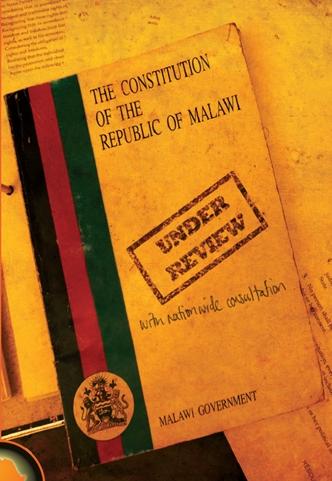In the 2 Sudans: War by any other means – By Jean-Baptiste Gallopin

 Southern secession has passed, and the return to all-out war between Khartoum and the south that many feared has not occurred. The run-up to independence was accompanied by large-scale northern offensives on Abyei and South Kordofan, with mounting evidence of grave human-rights violations by government forces against supporters of the Sudan People’s Liberation Movement (SPLM) in the north. But as Khartoum’s provocative actions brought the two Sudans dangerously close to the brink, the southern authorities refused to react, preferring to focus on the goal of independence. The immediate build-up to the 9 July independence celebrations saw President Omar al-Bashir make a sudden volte face – as he had done on the occasion of the referendum – to profess his desire for “˜brotherly’ relations with the south.
Southern secession has passed, and the return to all-out war between Khartoum and the south that many feared has not occurred. The run-up to independence was accompanied by large-scale northern offensives on Abyei and South Kordofan, with mounting evidence of grave human-rights violations by government forces against supporters of the Sudan People’s Liberation Movement (SPLM) in the north. But as Khartoum’s provocative actions brought the two Sudans dangerously close to the brink, the southern authorities refused to react, preferring to focus on the goal of independence. The immediate build-up to the 9 July independence celebrations saw President Omar al-Bashir make a sudden volte face – as he had done on the occasion of the referendum – to profess his desire for “˜brotherly’ relations with the south.
By Jean-Baptiste Gallopin – 29th July, 2011
Nonetheless, less than a month later, tensions have erupted again, this time indirectly. An economic war might have broken out. Following a series of restrictive measures adopted on 10 July by the Central Bank of Sudan against the southern financial system, South Sudanese Finance Minister David Deng Athorbei on 11 July announced that his country would launch its new currency within a week, rather than the six months initially agreed. The southern authorities appear to have simultaneously asked the Khartoum government for hard currency in exchange for the estimated $700m-worth of Sudanese pounds they were subsequently expecting to phase out of the market.
The move angered the north, which feared the South Sudanese government would attempt to dump the old pound on the Sudanese market (notably by importing goods for free), causing a massive increase in money supply in an economy already facing double-digit inflation. Khartoum rapidly struck back. Bashir on 12 July announced that Sudan would launch its own new currency, effective from 24 July. This kicked off a race to exchange currency: the first government to roll out its new money could hope to reduce inflation and use old pounds in its neighbour’s market. Khartoum’s minister of finance, Ali Mahmud, on 19 July introduced regulations banning the use of the old pound in trade with the south, and South Sudan on 26 July decided to shorten the currency-conversion period to 45 days, down from the 90 days initially planned. Unless the two Sudans agree to set up a co-ordination mechanism in the next few weeks, this currency war could have a significant impact on both economies. Meanwhile, unrest could break out if prices soar while segments of the population fail to convert their savings in time.
This currency war illustrates a key emerging dynamic in post-secession relations between the two Sudans: the adoption by both sides of tit-for-tat unilateral measures aimed at influencing the final shape of the relationship through “˜facts-on-the-ground’ policies. The formal negotiations between the National Congress Party (NCP) and the SPLM over crucial issues such as citizenship, legal affairs and the economy (including currency, debt and oil) in the post-secession era have so far failed to yield a comprehensive agreement. Meanwhile, the end of the 2005 Comprehensive Peace Agreement (CPA) on 9 July has created the opportunity for both sides to take unilateral decisions on some of the key contentious points that were frozen by the CPA or form part of bilateral negotiations.
Although most obvious in the currency question, this new dynamic is also evident in a number of other areas. While citizenship issues are meant to be solved through bilateral negotiations, the Khartoum government prior to secession unilaterally dismissed all southerners from the administration and the armed forces (except, by design, from the Ministry of Energy and Mines, which manages the oil sector). It also announced that southerners would be stripped of their citizenship in April 2012 and that they would need to apply for work permits for private-sector jobs. Despite repeated promises by South Sudanese President Salva Kiir that northerners in South Sudan would be granted dual citizenship, the Juba government in late July was apparently reversing its stance on the matter. South Sudanese Minister of Information Barnaba Marial Benjamin on 25 July said that skilled northerners and investors from the north would be given “˜permanent residency’, rather than citizenship. Making things difficult for northerners in South Sudan would damage the southern economy, given its reliance on imports from northern traders, but this is one of the only cards that South Sudan can hope to play to influence the Khartoum government.
With regard to oil-revenue sharing, unilateral decisions are also becoming the norm. The two governments agreed to a continuation of CPA wealth-sharing provisions, which equally divide oil revenues from the south between the two governments, for the month of July. The South Sudanese government has remained adamant that any suggestion of subsequent “˜wealth-sharing’ would infringe its sovereignty. But Khartoum wants to continue receiving a wide share of revenues through indirect means. SPLM secretary-general Pagan Amum on 25 July accused the Sudanese government of imposing a $22.80 fee for the use of pipelines and refining facilities located in the north. This figure is 20 to 40 times higher than international standards, and would allow Khartoum to retain about 30% of overall South Sudanese oil revenues. The move prompted outrage in South Sudan, but the Juba authorities appear to have little choice but to accept this decision: they rely on oil for 98% of their revenues and lack alternative oil-export routes.
These developments hint at what could prove a defining feature of relations between the two Sudans in the coming months, and possibly years. If the two governments manage, as they did in the CPA period, to prevent heightened tensions from escalating into full-fledged conflict, their incentive to reach a negotiated settlement could progressively diminish. As a result, they might find the “˜trial-and-error’ approach more attractive, and temporary arrangements could provide a useful blueprint for a final accord. This is made all the more likely given that the opportunities for direct military confrontation – even if only short-lived – between the Sudanese Armed Forces (SAF) and the Sudan People’s Liberation Army (SPLA) have significantly diminished since the northern invasion of Abyei in May. The border remains contested, but the two armies are no longer facing each other in one of the two Sudans’ most emotionally charged areas. The birth of an international border might reinforce this, given that the country choosing to engage in direct military actions across the border would be responsible for triggering a de facto international conflict. The SPLA in recent days has begun to withdraw from the northern side of the contested area of Kiir Adem, and both parties have shied away from clashing directly across their established positions in the past two months.
However, this approach is likely to prove highly damaging for the populations of the two countries if the governments continue to manipulate the question of citizenship and choose to intensify their economic war and proxy conflict. The many thousands of southerners living in Sudan – some of whom have lived there for decades – stand to lose much from the lack of a negotiated agreement. The residents of South Kordofan, Unity state and Jonglei are likely to continue to bear the brunt of the fighting as governments suppress armed groups supported by their neighbour. Hurried and competitive currency-exchange processes could affect the livelihood of entire populations by triggering large exchange-rate variations, fuelling inflation and wiping out families’ savings, leaving them with only worthless paper.
Jean-Baptiste Gallopin is is a Middle East and North Africa analyst at Control Risks, a political risk consultancy.






